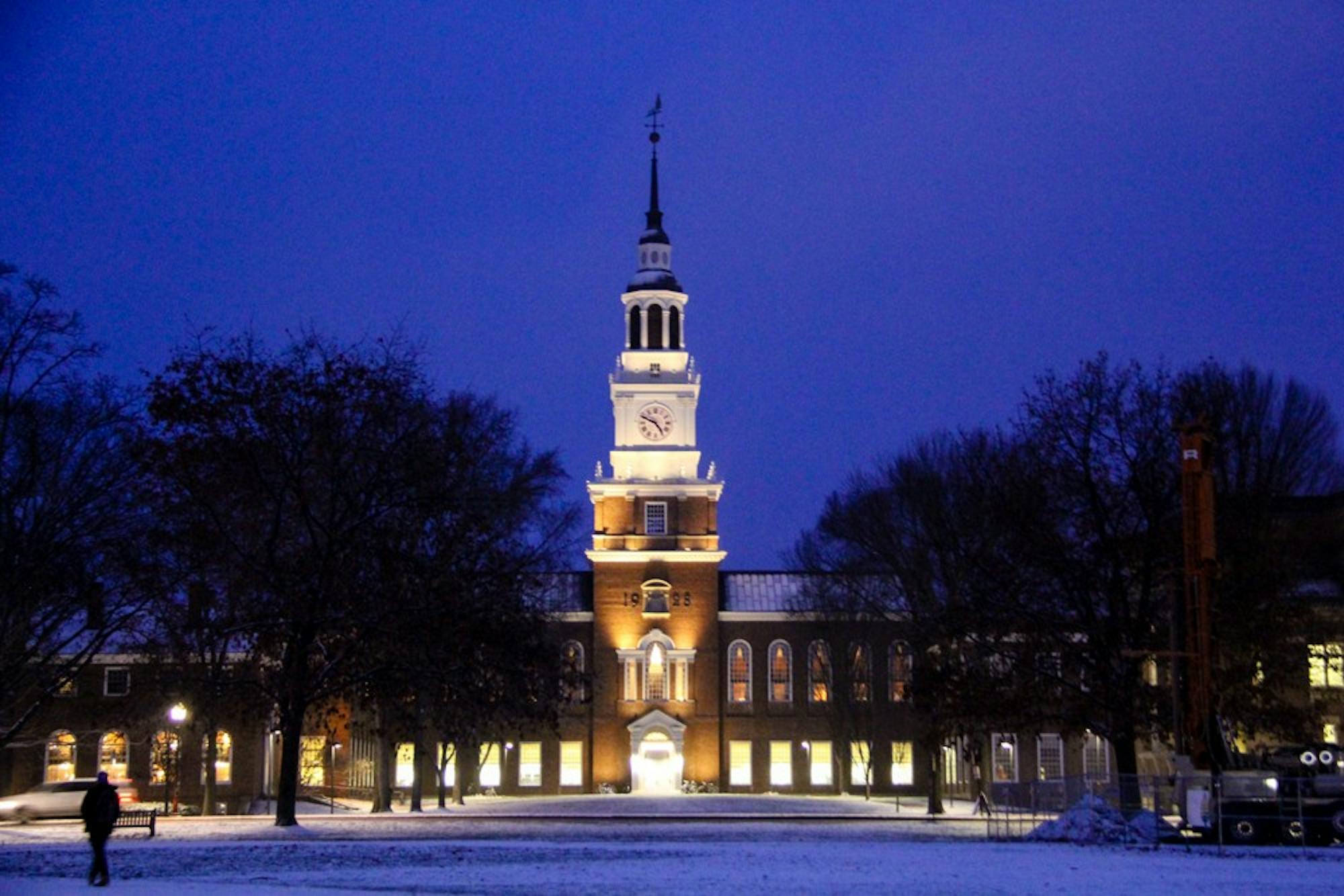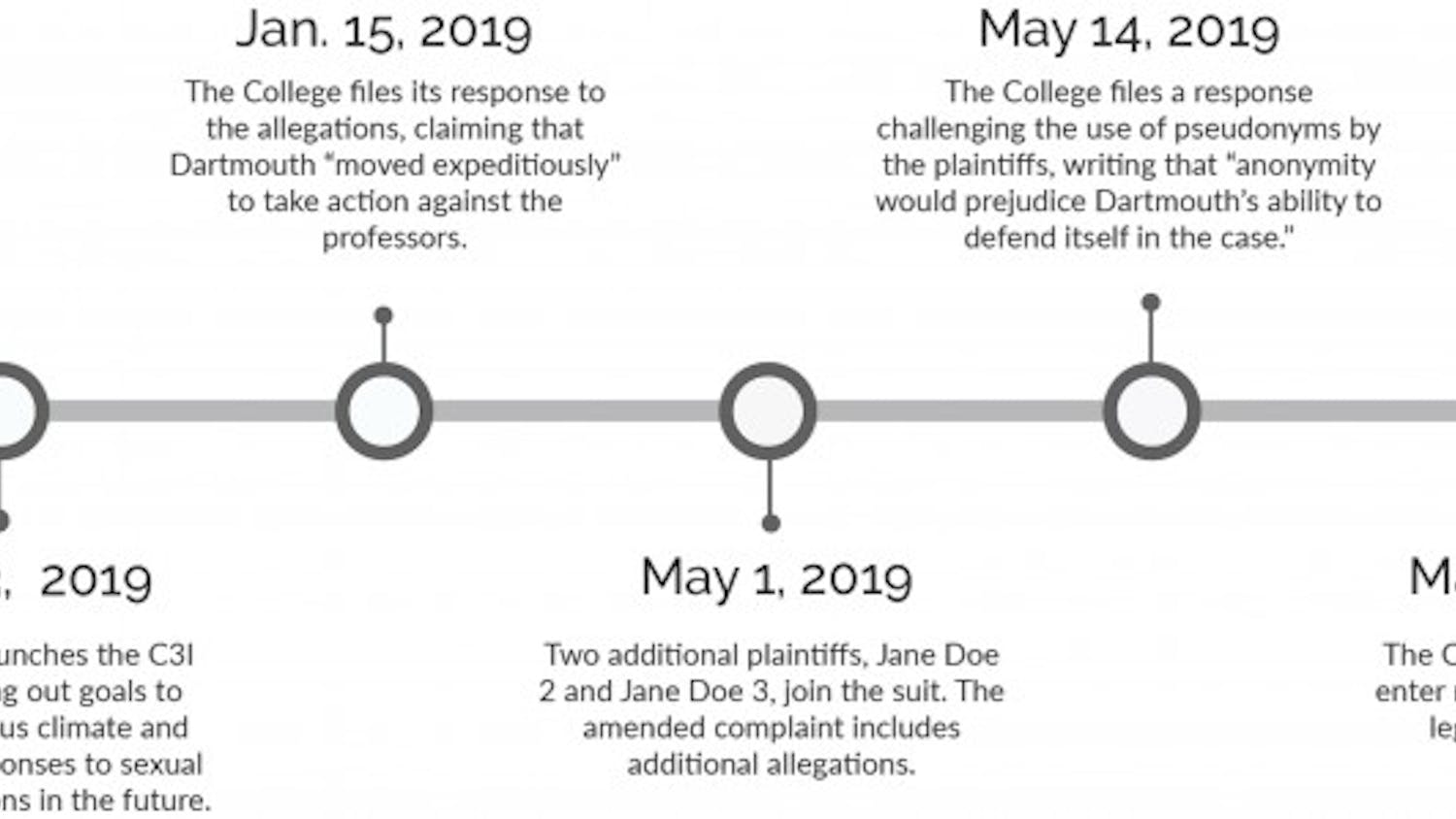With over $2.2 billion raised to date, the College’s “The Call to Lead” capital campaign has been “unprecedented,” according to alumni council member Julie Levenson ’84. The campaign’s $3 billion goal greatly surpasses the $1.3 billion raised in the College’s most recent capital campaign, The Campaign for the Dartmouth Experience, which was launched by former College President James Wright in 2002 and concluded in 2009.
In an email statement to The Dartmouth, senior vice president of advancement Robert Lasher ’88 wrote he is “confident” that the College will achieve the $3 billion goal, and that while the campaign has already accomplished much, the final $1 billion raised may be the most crucial.
In April 2018, College President Phil Hanlon announced The Call to Lead campaign, launching the public phase of an ambitious fundraising effort. The main goals of the campaign include securing the College’s position as a leader in the liberal arts, pursuing research discoveries aimed at global impact and increasing the leadership potential of students. While many of these benchmarks are soft targets, the campaign also includes plans to increase financial aid for international students, ensure that Dartmouth students do not need to take out loans to pay for their education, and support building projects such as the West End expansion and a renovation of Dartmouth Hall.
Alumni council member Jo Golub ’98 noted that there was a significant silent fundraising period for The Call to Lead, which allowed the campaign to launch in April 2018 with $1.5 billion already raised. Since then, the campaign passed the $2 billion mark less than a year after its launch. The College has raised $2,206,562,694 at time of publication, about 74 percent of the $3 billion goal.
Lasher credited much of the success of the campaign to the dedication and passion of the College’s alumni.
“Dartmouth is an exceptional community,” Lasher wrote. “I believe that fact incites our alumni to give back at exceptional levels, defying trends in philanthropy nationwide and the levels among our Ivy League peers. The desire to support Dartmouth starts with affection and gratitude for what we alumni received as students. Many of us give to preserve and advance excellence, to pay it forward to the next generation, and to improve society because we believe in the people this institution produces.”
This sentiment is reinforced by the fact that Dartmouth has continually topped Forbes’ Grateful Grad index, which ranks schools based on alumni commitment through donations. Dartmouth was first on this year’s list, with 41 percent of alumni donating within three years of graduation and the median donations by alumni over seven years being $38,628.
“Dartmouth’s tradition of peer-to-peer giving and volunteerism amplifies that sense of community,” Lasher wrote.
This sentiment was echoed by the members of the College’s alumni council.
“Clearly there is something about the sense of place here … there’s a unique community that is created during your four years that only deepens as you continue on in the world,” Levenson said. “You realize what a special place this is, and that it cannot be replicated.”
She described how alumni feel “tethered” to the Dartmouth community after their time on campus that they will stretch to give back. Levenson also expressed full confidence in how Hanlon and The Call to Lead campaign board plans on using the funds.
“I have no worry that the money that is being raised is going toward the right initiatives and moving the school forward,” she said.
Other alumni council members were similarly enthusiastic about the direction in which the campaign will propel Dartmouth forward as an institution.
Nicole Moser ’89 found the most remarkable aspect of the campaign to be the amount of small donations contributed, which she called a testament to the breadth of alumni engagement.
“I was really impressed by the number of donations under $25,” she said. “This has been the most inclusive [campaign], which is exciting.”
Lasher noted that in the last year, over 20,000 individual donors supported the Dartmouth College Fund, adding around $1 billion to the College’s endowment. Over 86,000 people have participated in the campaign to date.
He also explained the process by which his office works to solicit larger donations. He wrote that once an individual or family indicates interest in supporting a part of the campaign, leaders at the College communicate a way to illustrate the potential impact of the gift.
“Namesake gifts do not happen overnight but emerge from long relationships with the institution and a deep knowledge and passion for its mission,” Lasher wrote.
He added that donors often seek to expand programs, begin initiatives or solve a major problem on campus. However, he also noted that all namesake gifts share four unifying characteristics: “a shared aspiration between the donor and the institution; an abiding belief in the power of education; trust in execution, and desire to build on what already makes Dartmouth great.”
Lasher summarized the Call to Lead as “the mobilization” of the Dartmouth community.
“[The Call to Lead] has the potential to drive Dartmouth to a truly distinctive position in higher education and to elevate our global profile,” he wrote.
Correction appended (Nov. 12, 2019): This article originally described Robert Lasher's position as senior vice president of advertisement. He is senior vice president of advancement.



